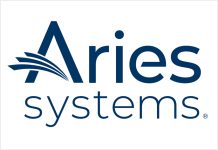
Clarivate Plc, a leading global provider of transformative intelligence, today announced the development of a comprehensive framework for evaluating the societal impact of research. The approach has been outlined in a new report published today by the Institute for Scientific Information (ISI)™ to address the growing demand for demonstrating the benefits of research and development (R&D) investments across various sectors of society.
The report, A responsible framework for evaluating the societal impact of research, outlines a responsible and robust foundation for evaluation that goes beyond traditional scholarly output and includes a wide range of data sources. The new framework will be incorporated into the forthcoming Web of Science Research IntelligenceTM platform.
Emmanuel Thiveaud, Senior Vice President, Research and Analytics, Academia & Government at Clarivate, said: “As global R&D spending continues to rise, funders, governments and institutions face increasing pressure to ensure that their investments provide measurable benefits in areas such as health, climate change and technological advancement. This new framework developed by the Institute for Scientific Information provides the tools necessary to meet this demand, allowing users to focus on specific research areas most relevant to their organization’s mission and long-term objectives.”
The framework developed by Clarivate addresses core challenges in evaluating societal impact:
- Recognizing the varied and complex needs of society: To address the diversity of societal needs, the framework categorizes societal needs into eight facets: Political & Policy, Legal & Governance, Economic, Human Capital, Medical, Social & Cultural, Technological and Environmental.
- Balancing qualitative and quantitative approaches: The framework will extend beyond traditional quantitative indicators to enable richer and more nuanced qualitative assessments.
- Navigating the long timeframes between research discovery to societal application: To mitigate the challenge of lengthy delays between research being conducted and any resultant societal benefits, the evaluation framework contains both lagging and leading indicators. Lagging indicators offer retrospective insights by analyzing past outputs and activities, while leading indicators are forward-looking and analyze recent signals that suggest the potential to generate future societal benefits.
Dr Dmytro Filchenko, Senior Director, Research & Analytics at the Institute for Scientific Information said: “Our framework leverages our extensive resources of enriched data which goes beyond scholarly output and extends to our data on patents, clinical trials, policy documents, media publications, data sets, educational outputs, funding data and much more, as well as external data sources where necessary. This comprehensive approach ensures a nuanced and accurate assessment of societal impact across various domains.”
Each of the eight facets in the framework contains multiple individual metrics, allowing for a detailed and customizable evaluation. The overall societal impact for each facet will be presented responsibly in a Societal Impact ProfileTM with the underlying individual metrics available to support transparency and more granular analyses. This will allow Web of Science Research Intelligence platform


























